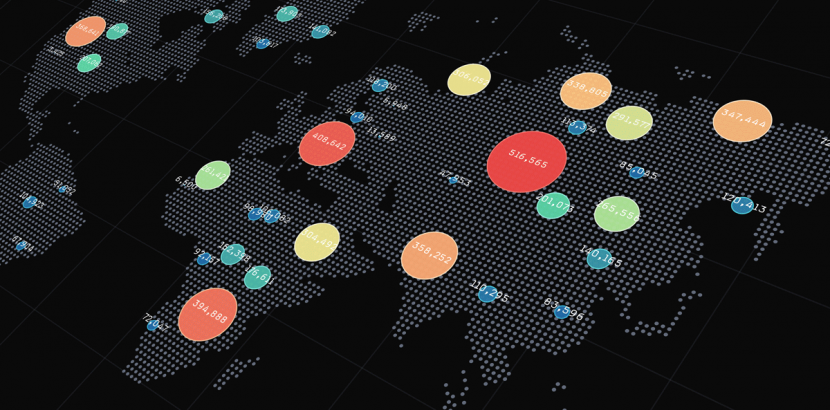UM mathematicians at the forefront of infectious disease modelling
Government of Canada announces 10 million dollars to support five multidisciplinary infectious disease modelling networks
APRIL 9, 2021 — UM researchers: Drs. Julien Arino, Stéphanie Portet, and Kang-Ling Liao, (mathematics) are part of a $10 million-dollar investment in Emerging Infectious Diseases Modelling established between the Natural Sciences and Engineering Research Council and the Public Health Agency of Canada.
The funding supports five multidisciplinary infectious disease modelling networks, that will significantly improve the coordination of infectious disease modelling to help Canada better respond to future public health threats.
Dr. Julien Arino is co-lead of Data Management on the One Health Modelling Network for Emerging Infections (OMNI), led by Huaiping Zhu, York University. OMNI also includes UM researchers, Drs Stephanie Portet and Kang-Ling Liao. The multidisciplinary team was awarded $2.5 million to study the interplay between humans, animals, and the environment, and traces the disease from detection through to early warning, early response, and mitigation of new disease threats.
Dr. Arino is also part of the $3 million Mathematics for Public Health (MfPH) network, led by Vijayakumar Murty, Fields Institute & University of Toronto, which comprises renowned experts who worked on the SARS outbreak (2003), and the $2.5 million Canadian Network for Modelling Infectious Disease (CANMOD), led by Caroline Colijn (Simon Fraser University). Within MfPH, he leads a project on Transport and Importation.”
“These multidisciplinary networks of experts across the country will strengthen Canada’s ability to manage threats from emerging and infectious diseases, protecting all Canadians from current and future pandemics. At the same time, they will help advance Canada’s equity, diversity and inclusion goals through research design and team composition, as well as training the next generation of research leaders.” said the Honourable François-Philippe Champagne, Minister of Innovation, Science and Industry
“Manitoba and the Faculty of Science are excited to be a part this interdisciplinary pan Canadian team and sees this kind of approach as being critical to addressing society’s wicked problems.” explained, Stefi Baum, Dean of Faculty of Science, University of Manitoba.
Professor (mathematics)
Dr. Arino’s research deals primarily with mathematical population dynamics in epidemiology and ecology, with a focus on modelling population movement. Dr. Arino studies the spatio-temporal spread of infectious diseases, with a focus on the relationship between modern commercial aviation and the fast-global spread of infectious pathogens. Dr. Arino uses modelling and graph analysis to consider the risk of importation of disease to various public health entities. Other areas of interest include the stress imposed on public health systems by the variety of health practices used around the world, for example, the treatment of infections or vaccination schedules and other problems concerning population dynamics in ecology and biology. Dr. Arino is a participant in the Data Science NEXUS multidisciplinary program as well as the VADA (Visual and Automated Disease Analytics) graduate studies program.
Professor (mathematics)
Dr. Portet’s research encompasses different domains such as biophysics and mathematical biology. Including models of the organization of networks and assembly of filaments composing networks. Dr. Portet uses deterministic and stochastic dynamical models; mathematical and computational analysis to characterize transient and asymptotic behaviour of models. Dr. Portet’s research specialty is intermediate filament networks.
Assistant Professor (mathematics and biological sciences)
Research interests include mathematical modelling and analysis of medical and biological systems, dynamical systems, delay differential equations, differential equations, and bifurcation theory. Dr. Liao works on mathematical biological problems to understand biological mechanisms, such as G protein signalling pathway, cancer immunoediting modelling, somitogenesis (somite formation and morphology), gene regulation, and evolution in ecology.



